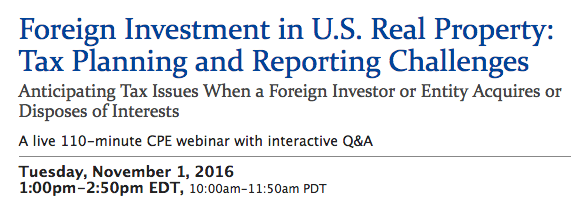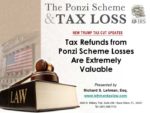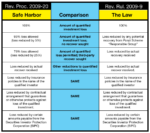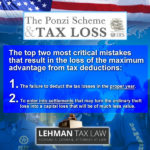Foreign Investment in U.S. Real Property: Tax Planning and Reporting Challenges

On Tuesday, November 1, 2016 this Stafford live webinar will provide accounting, tax and legal professionals with a review of tax considerations for foreign investors in U.S. real estate.
The panel will address challenges such as form of ownership and IRS reporting obligations, among others.
Webinar Description
The U.S. tax rules governing investment in U.S. real estate by foreign nationals is complex, and tax professionals advising foreign investors must have a thorough understanding of the U.S. tax requirements for reporting and withholding. Advisers must also develop an in depth understanding of the impact of various ownership structures to determine the most advantageous form of ownership for foreign investors in U.S. real estate.
Tax professionals must identify tax planning opportunities beyond entity selection in structuring a deal. Tax advisers, counsel and tax executives must grasp the essential tax aspects when developing a plan for operating and disposing of property prior to closing the purchase deal to avoid unanticipated U.S. tax liability for foreign investors down the road.
Listen as our panel of experienced tax professionals discusses key tax considerations and strategies for foreign investors buying, holding and disposing of U.S. real estate.
Webinar Outline
- Overview of tax rules that apply to foreign investors in U.S. real estate
- Income
- Withholding
- FIRPTA
- Estate and gift tax
- Income tax residency and estate/gift tax residency
- Treaty application
- Investment structure alternatives and their tax consequences
- Individual ownership
- Ownership through U.S. LLC
- Ownership through foreign corporation
- Ownership through U.S. corporation
- Ownership through trusts
Webinar Benefits
The panel will review these and other key questions:
- What are the tax implications of purchasing U.S. real estate individually or through a U.S. LLC vs. a foreign corporation, a U.S. corporation, or a trust?
- What are the tax reporting obligations for non-U.S. owners of U.S. real estate?
- What tax pitfalls do professionals need to grasp when handling the tax and compliance issues for foreign investors?
- What special FIRPTA rules apply to REITs?
Webinar Learning Objectives
- Ascertain unique tax considerations for foreign investors in U.S. real estate
- Determine the most appropriate type of purchasing entity for the foreign investor
- Discern the tax consequences of purchasing U.S. real estate through a U.S. LLC, a foreign corporation, a U.S. corporation or individual ownership
- Recognize tax reporting obligations for non-U.S. owners of U.S. real estate
- Identify the special FIRPTA rules that apply to REITs
Faculty
Ryan Dudley, Partner
Friedman, New York
Mr. Dudley specializes in developing cross border commercial structures and financing strategies to optimize international operations and transactions. With nearly 20 years of public accounting and investment advisory experience, his clients have ranged from Fortune 50 multi-national corporations, to private equity and hedge funds, and have included small businesses and start-ups. He has advised clients in industries as diverse as banking and finance, technology, real estate, infrastructure, manufacturing and pharmaceuticals.
Richard S. Lehman, Atty
United States Taxation and Immigration Law, Boca Raton, Fla.
Mr. Lehman’s tax law practice focuses on an array of commercial transactions involving an international and domestic client base. He previously served as Senior Attorney, Interpretative Division, Chief Counsel’s Office, Internal Revenue Service, Washington D.C. He authored articles on taxation and was editor and contributing author of A Guide to Florida International Business and Investment Opportunities.
John R. Strohmeyer
Crady, Jewett & McCulley, Houston
Mr. Strohmeyer’s practice focuses on traditional estate and disability planning, probate and estate administration, and the preparation of estate and gift tax returns. He also has experience in the design, implementation, and administration of foreign trust and related business and investment structures, including taxation and compliance aspects of such structures.








